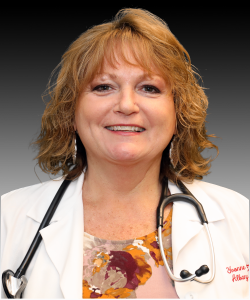IBS is a very common disorder. Please refer to the essay Irritable Bowel Syndrome for details about this disorder. This information is directed to dietary considerations.
The large bowel or colon is the site of many beneficial bacteria. However, the colon is the site for many of the symptoms in IBS patients. Since this organ is where all fiber and other food remnants arrive, it would seem logical that some parts of food we eat might play a role in the symptoms of IBS, which for the most part, are a reflection of an overly sensitive colon.
IBS is currently seen as falling into several major types; diarrhea predominant, constipation predominant or alternating between the two. Patients will frequently overlap their symptoms or even swing from one type to another. In each case, the diet may play an important role. So there is always some experimentation that each patient must undertake to see which dietary changes work best.
Abdominal Discomfort, Cramps, Bloating
The gut has been called the second brain because it has so many nerve cells within it. IBS patients have an increased nervous sensitivity built into their intestinal tract. This means that minor changes in the way the intestines contract can be perceived as discomfort, whereas in other people it is not. At times, there may be excessive production of colon gas resulting in bloating and discomfort. It is important that you understand how this occurs, namely that colon bacteria ferment soluble plant fibers in the food you eat and some of these bacteria will create harmless gases. You need to understand the difference between soluble fiber and insoluble fiber in your foods.
All fiber goes through the small intestine unchanged. Soluble fiber as is found in foods such as oats, beans and fruit pectins is fermented by the colon bacteria. It is used as a food by these bacteria which, in turn, provide significant health benefits. Some benign colon bacteria will create intestinal gases, mostly hydrogen, which then can move on down and become flatus. Insoluble fiber, on the other hand, is not fermented by colon bacteria and is evacuated relatively unchanged. No colon gas occurs with insoluble fiber.
Constipation Dominant
Constipation occurs when the colon just does not contract well enough or often enough. The stool within it becomes dehydrated and hard. Why does the colon become so lazy and what can be done about it? The diet may be important. Insoluble fibers such as wheat and wheat bran are not fermented by colon bacteria so they do not produce colon gas. At the same time, they retain water and create a large, bulky stool. This, in turn, often stimulates the colon to contract and provide easier evacuation. The first step then is to gradually increase the amount of insoluble fiber up to 10-15 grams a day or even more.
Soluble fibers, on the other hand, are trickier since they are used by colon bacteria as a food source and some of these bacteria make colon gas. Still, these fibers, especially the newly discovered prebiotic ones, produce many benefits within the colon. So, the IBS patient should eat enough soluble fiber to create its health benefit but not enough to produce crampy bloating and flatus.
Go to Fiber Content of Foods for the amount of fiber in each food.
Methane Constipation
Methane is just one of the gases in the colon along with hydrogen sulfide (odor), hydrogen, carbon dioxide and oxygen. There is some early research that suggests that the colon gas, methane, may promote constipation. Prebiotic plant fibers can change the acidity of the colon to an extent that these particular methane producing bacteria can’t grow. I would encourage my constipation dominant IBS patient to eat prebiotic containing foods. Or they could take prebiotics supplement powders in gradually increasing doses – 1 gram a day for a week, then 2 grams and so forth. If excessive colon gas and bloating or cramps occur before constipation improves, then the test did not work. If it did, then that amount of prebiotic food or supplement is right for you. A signal to look for is to evaluate the malodorous sulfide smell of your flatus. Like the methane producing bacteria, the bacteria that make these sulfide gases also can not grow in an acid environment. If your flatus has no or little smell, your colon may be at the right acidity and so prevent the methane producing bacteria from growing.
Diarrhea Dominant
There are many causes of diarrhea. Your physician will want to be sure there is not a correctable cause present. For instance, some patients chew sugar free gum, which is high in the sweetening agent, sorbitol. This can lead to diarrhea. Read the labels. Others may have lactose intolerance, meaning they don’t digest the milk sugar, lactose. The lactose ends up in the colon where it can promote colon gas and diarrhea. There may be chronic infections, such as the parasite, Giardia, residing in the small bowel. Celiac Disease may be present. When all of these and more are ruled out, then diarrhea dominant IBS can be diagnosed with confidence.
The next step is to consider the types of fiber in your diet. Increasing insoluble fiber in the diet or with a dietary supplement is worth a try as these can bulk up the stool which, of course, is desirable. Soluble fibers can aggravate diarrhea. However, they, along with probiotic bacteria, can also change the bacterial makeup of the colon in such a beneficial way that it may reduce the diarrhea.
Go to Fiber Content of Foods for details.
I suggest gradually increasing the insoluble fiber in the diet up to 10 grams or more a day. Following this, I would add prebiotic fibers, either in foods or a dietary supplement in very gradual increasing doses. If there were no change in symptoms, then I would add a probiotic at the direction of your physician. There is no secret here. What works for one IBS patient with diarrhea may not work for another. Judicious trial and error is recommended.
Colon Bacteria in the IBS Patient
We, in medicine, are in a new era regarding what we know about the colon and its inhabitants. What we have known for a long while is that the density and numbers of bacteria within the human colon are greater than any other place in the animal kingdom or, in fact, any place in the world. There are more bacteria within the colon by a factor of 10 than there are cells in the entire body. This is amazing! There is likely a reason and, yes, a good healthy reason for this. We have always thought that there were around 400-500 different species of colon bacteria. We were wrong. The number just discovered is closer to 1,000 different species.
A key and likely a very important fact, is that IBS patients have a significantly different colon bacterial makeup than those people without IBS. This has been a startling finding but, thinking it through, it should not have come as a great surprise. Bacteria flourish in the colon and they provide huge numbers of benefits for us. They rely on the foods we eat and what we used to call waste products for their health. However, in some way they may be a problem as well. Can changing the bacterial makeup of the colon change the symptoms in IBS patients? This is a key question. Some research studies suggest that a certain probiotic formula may reduce the symptoms of cramping and bloating in some IBS patients. We will await more research on what these interesting findings mean for the IBS patients.
Changing Colon Bacteria
This may be difficult but not impossible. A change in the foods you eat is central.
Gradually reduce animal foods – meat, poultry, fish to a more balanced diet with increasing fresh fruits and vegetables. You can go to Fiber Content of Foods to get a great deal of information of fiber of various food groups.
Add probiotics to your diet. There is no consensus yet on which are the best ones. There is still much research being done. The three types of bacteria which have been studied most are the Bifidos (Bifidobacterium), the Lactos (Lactobacillus) and streptococcus. You can get these in many low calorie dairy products and yogurt as well as over-the-counter pills.
Increase prebiotics in the diet with specific foods that contain them. The main ones are inulin and oligofructase. North Americans generally have a very low consumption of these, getting most in wheat and onions. An easy way to add prebiotics is with a dietary supplement .
Summary
There are no specific and right answers for every IBS patient. There will always be some trial and error necessary to see what is right for you. Still, there are some general principals that may apply to most patients.
- Gradually reduce animal protein, especially red meat and increase the vegetables and fruit content proportionally. Select a balanced mix of soluble and insoluble fiber, aiming for 25-35 grams a day. Go to Fiber Content of Foods for specifics.
- You can try adding a probiotic. The product with some evidence behind it for improving cramps and bloating is VSL#3. There are likely other healthy probiotics that work but we just don’t have the evidence for them yet. There are likely beneficial bacteria in many yogurt and dairy food preparations. The ones that have been best studied are the Bifidos (Bifidobacterium), Lactos (Lactobacillus) and certain streptococcus species. Always check with your physician before using probiotics.
- Increase prebiotics fibers in the diet by eating specific foods (Sources of Prebiotics) and/or a supplement.


